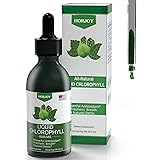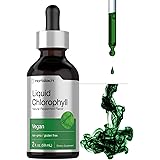Recent data indicates that a substantial portion of the population struggles with chronic stress, impacting not just mental well-being but also physical appearance and overall health. As highlighted in the video above, one noticeable manifestation of prolonged stress can be a phenomenon often referred to as a “cortisol face.” This distinctive roundness, often confused with dietary changes, is actually a tell-tale sign that your body might be battling elevated levels of the stress hormone, cortisol. Understanding this connection is crucial for anyone seeking to reclaim their health and appearance from the pervasive grip of stress.
Understanding the “Cortisol Face” and the Grip of Chronic Stress
When the body experiences stress, whether physical or psychological, it triggers the release of cortisol from the adrenal glands. Cortisol, often dubbed the “stress hormone,” is essential for our “fight or flight” response, helping us manage immediate threats. However, when stress becomes chronic, these cortisol levels remain persistently high, shifting from being a protective mechanism to a detrimental force. One of the most visible signs of this chronic elevation is the “cortisol face” – a characteristic puffiness or roundness that often develops due to fluid retention and specific fat deposition.
The physiological mechanism behind this facial alteration is multifaceted. Just as a sculptor might reshape clay, excess cortisol can influence the distribution of fat in the body, often favoring areas like the face and midsection. This isn’t just about accumulating fat; it’s about a fundamental shift in metabolic processes. The body, under constant stress, begins to prioritize fat storage and can even break down muscle tissue from less critical areas, such as the limbs and glutes, converting those proteins into glucose for perceived energy demands. This catabolic state not only contributes to a rounded face but also to the notorious “stress belly” fat, even in individuals who maintain a relatively healthy diet.
Beyond the Face: Cortisol’s Broader Impact on Your Body
The influence of elevated cortisol extends far beyond just facial puffiness and midsection fat. Chronic exposure to high cortisol levels can act like a slow, steady drain on your body’s resources, impacting numerous bodily systems:
- Muscle Wasting: As mentioned, cortisol can break down protein, leading to muscle loss, particularly in the extremities, making muscles appear smaller and less defined.
- Bone Density: Long-term cortisol elevation can interfere with calcium absorption and bone formation, increasing the risk of osteoporosis.
- Immune Function: While acute cortisol can boost immunity, chronic high levels can suppress the immune system, making you more susceptible to illness.
- Blood Sugar Regulation: Cortisol increases blood glucose levels to provide energy during stress. Persistent elevation can lead to insulin resistance and increase the risk of type 2 diabetes.
- Mood and Cognition: Chronic stress and high cortisol are linked to anxiety, depression, impaired memory, and difficulty concentrating.
- Sleep Disturbances: Cortisol naturally peaks in the morning and lowers at night. Chronic stress can disrupt this natural rhythm, leading to insomnia and poor sleep quality.
In essence, chronic high cortisol levels can transform your body’s internal landscape, turning it into a fortress constantly under siege, rather than a thriving ecosystem. This underscores the critical need for effective stress management strategies.
Introducing L-Theanine: A Natural Ally Against Stress and Sleeplessness
Given the widespread impact of cortisol, finding effective ways to manage stress is paramount. One natural compound gaining significant attention for its calming properties is L-theanine. This unique amino acid, predominantly found in green tea leaves, has been researched for its ability to promote relaxation without causing drowsiness, making it a compelling option for those seeking balance.
Unlike sedatives that simply quiet the nervous system, L-theanine works in a more nuanced way, akin to a gentle guide leading your brain to a state of calm alertness. It doesn’t put you to sleep outright, but rather prepares your mind and body for a more restful state. This makes it an ideal choice for managing daily stressors and optimizing sleep quality.
The Science of Calm: How L-Theanine Works Its Magic
The benefits of L-theanine stem from its direct influence on brain chemistry and electrical activity. Here’s a closer look at its mechanisms:
- Boosting Alpha Brain Waves: L-theanine is known for its remarkable ability to increase alpha brain wave activity. Imagine your brain’s electrical activity as a symphony: beta waves are the fast, energetic notes of focus and alertness, while delta waves are the slow, deep notes of dreamless sleep. Alpha waves are the harmonious middle ground – the meditative, relaxed state of mind often experienced during deep thought or yoga. By promoting these alpha waves, L-theanine helps you achieve a state of relaxed vigilance, where your mind is calm yet attentive, free from the chatter of anxiety.
- Increasing Key Neurotransmitters: This amino acid also plays a role in boosting the production of several crucial neurotransmitters that regulate mood, sleep, and stress response:
- GABA (gamma-aminobutyric acid): This is the primary inhibitory neurotransmitter in the brain, functioning like a “brake pedal” for the nervous system. Higher GABA levels help to calm overactive neurons, reducing feelings of anxiety and promoting relaxation.
- Serotonin: Often called the “feel-good” neurotransmitter, serotonin contributes to feelings of well-being and happiness. Balanced serotonin levels are vital for mood regulation and can indirectly support sleep.
- Dopamine: While L-theanine’s primary effects are calming, it can also influence dopamine levels, which play a role in pleasure and motivation, further contributing to a positive mood.
- Melatonin Synthesis: The video highlights that L-theanine also increases melatonin, the body’s primary sleep hormone. Melatonin signals to your body that it’s time to wind down for sleep. By enhancing its production, L-theanine supports the natural sleep-wake cycle, making it easier to fall asleep and stay asleep throughout the night. It acts like a dimmer switch for your internal light, gently easing you into the darkness of sleep.
These combined effects make L-theanine a powerful, yet gentle, tool for managing the physiological and psychological impacts of stress, paving the way for improved well-being and a better night’s rest.
Optimizing Your Sleep and Calming Your System with L-Theanine
To maximize the benefits of L-theanine for both stress reduction and sleep enhancement, timing is key. As mentioned in the video, taking L-theanine approximately an hour before you plan to go to sleep allows sufficient time for it to be absorbed and begin influencing brain wave activity and neurotransmitter levels. This proactive approach helps to gently prepare your body and mind for rest, rather than trying to force sleep once you’re already agitated.
A typical dose ranges from 100 mg to 200 mg, though individual needs can vary. It’s always advisable to consult with a healthcare professional before starting any new supplement regimen, especially if you have underlying health conditions or are taking other medications. Beyond the timing, integrating L-theanine into a broader routine of self-care and stress management can yield the most profound results. It’s not a standalone cure, but a valuable component in a holistic approach to well-being.
Holistic Strategies for Managing Cortisol and Stress
While L-theanine offers a powerful way to mitigate the effects of stress and high cortisol, a comprehensive approach is always best. Consider integrating these strategies into your daily life:
- Mindful Movement: Regular, moderate exercise like walking, yoga, or swimming can significantly reduce stress hormones. Avoid overly intense exercise late in the evening, as this can temporarily elevate cortisol.
- Balanced Nutrition: A diet rich in whole foods, lean proteins, healthy fats, and complex carbohydrates supports stable blood sugar and adrenal health. Limit processed foods, excessive caffeine, and refined sugars, which can exacerbate stress responses.
- Prioritize Sleep Hygiene: Establish a consistent sleep schedule, create a dark, cool, and quiet sleep environment, and limit screen time before bed. Quality sleep is a cornerstone of cortisol regulation.
- Mindfulness and Meditation: Practices such as meditation, deep breathing exercises, and journaling can train your mind to respond to stress more effectively, reducing the activation of the stress response.
- Social Connection: Nurturing strong relationships and engaging in social activities can provide emotional support and reduce feelings of isolation, which are often stress triggers.
- Nature Exposure: Spending time outdoors, whether in a park or a forest, has been shown to lower cortisol levels and improve mood.
Managing chronic stress and its physiological manifestations, like a “cortisol face,” requires a multi-pronged strategy. By understanding the intricate dance of hormones and brain chemistry, and incorporating supportive tools like L-theanine alongside robust lifestyle practices, you can effectively lower cortisol and improve sleep quality. This proactive approach to well-being can help diminish the visible signs of stress and cultivate a deeper, more enduring sense of calm and vitality, leaving you with not only a more relaxed countenance but a more resilient body and mind.











